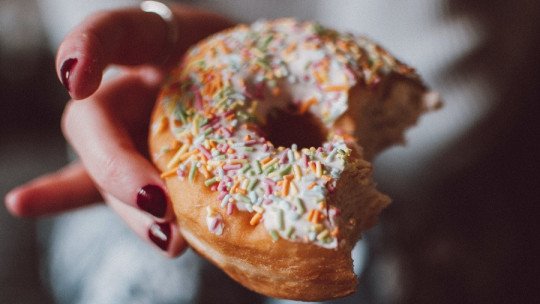
Surely you’ve heard people talk about how negative snacking between meals is for building healthy eating routines. To begin with, it is important to define that, when it comes to eating, there are no eating behaviors that should be classified as good or bad. Some are better or worse for each person, but the important thing is, before making any decision about our diet, to know the relationship we have with our intake.
Punishing other people’s eating habits can be very negative for their mental health and lead to eating disorders. Therefore, we want to start from the basis that this article does not have the intention of demonizing any eating act or behavior. This article is aimed at all people who have identified a pattern of snacking between meals that interferes with their daily life and which they want to change while maintaining attention to their well-being and mental health.
Taking this into account, throughout this article we will discuss what snacking between meals is and why, for some people, it can become an unhealthy eating pattern. Remember that each person is unique and no one can say what kind of relationship you should have with food; There are no patterns for it, good or bad, better or worse.
What is considered snacking between meals and why has it been punished?
Normally, when we talk about snacking between meals, we are referring to those moments in which we experience hunger between main meals and, in search of a quick solution, we snack on some food that we have in the kitchen and that is easily accessible. Snacking between meals can have a significant impact on our well-being when we resort to it for a long time over time and becomes almost more important than the main meals.
Socially, snacking between meals has been a behavior punished because it deviates from eating habits classically classified as healthy. However, it is important that you listen to yourself and develop communication in some way with your intake and your relationship with food. Snacking between meals does not have to be bad for your health or cause harm to you; Each case is specific and it is important to listen to yourself. In this article, we are going to refer to snacking between meals that becomes a compulsive cycle and does put our health at risk.
One of the biggest dangers of snacking between meals is the ease with which it can become an endless cycle It starts with a small bite here and there, but over time, those small snacks can add up to a considerable amount of empty calories and unwanted nutrients. This can lead to unwanted weight gain and related health problems, such as obesity and type 2 diabetes.
Not only can snacking lead to weight gain, it can also contribute to a host of physical health problems. The typical snacks we consume between meals are often high in refined sugars, saturated fats and sodium. Excessive consumption of these ingredients can increase the risk of cardiovascular disease, high blood pressure, and other health problems related to an unhealthy diet.
In addition to the negative effects on physical health, snacking between meals can also have an impact on emotional health. People often turn to snacks when they are stressed, bored or anxious. This can become an unhealthy coping mechanism, creating a negative relationship with food and worsening underlying emotions.
Why do we like to snack between meals?
To address any habit, but especially those that can trigger maladaptive or unhealthy reactions in us, it is essential to understand the reasons behind it. Snacking between meals has psychological and social influences that can make this behavior become a compulsion or obsession and be harmful to health.
1. The role of emotions
One of the main drivers of snacking between meals is emotions Many people turn to food as a way to deal with stress, sadness, or anxiety. Food often acts as a temporary comfort, leading to a momentary feeling of relief. However, this satisfaction is short-lived and is usually followed by feelings of guilt and remorse.
2. Habit and routine
Another factor that contributes to snacking between meals is routine. If you make a habit of snacking at a specific time every day, your body and mind may come to expect it, even if you’re not really hungry. Breaking this habit cycle can be challenging, but it is essential to avoid unnecessary snacking.
3. Boredom and distraction
Boredom is a silent enemy when it comes to healthy eating habits. When we have nothing to do or are faced with a monotonous task, the temptation to snack between meals can be overwhelming. Snacking becomes an easy distraction and, ultimately, a way to fill time rather than addressing true emotional or physical needs.
Health consequences
Now that we’ve explored the reasons behind snacking, it’s important to understand the consequences this habit can have on your health. Occasional snacking may not seem harmful, but when it becomes a regular practice, it can have a negative impact on various aspects of your well-being.
1. Unwanted weight gain
One of the most obvious consequences of snacking between meals is unwanted weight gain. Snacks are often high in calories, fat and sugar, which can lead to excess caloric intake. It is important to consider that gaining weight doesn’t have to be a problem, it is important to self-evaluate and explore the emotions you develop based on your situation and your body. You should not punish yourself if you gain weight, but you should consider whether this really is a problem for you and whether or not it affects your health.
2. Digestive problems
Constant snacking and irregular food intake can cause digestive problems. Your digestive system works best when it has rest periods between meals, allowing for proper digestion. Frequent snacking can upset this balance and cause gastrointestinal upset, heartburn, and other digestive problems.
3. Impact on blood sugar levels
Eating snacks high in sugar and refined carbohydrates can lead to fluctuations in blood sugar levels. This can cause energy spikes followed by crashes, leaving you feeling tired and hungry again, perpetuating the snacking cycle.
4. Effects on mental health
Snacking between meals can also have effects on mental health. Fluctuations in blood sugar levels and feelings of guilt associated with snacking can affect your mood Additionally, using food as a coping mechanism can mask underlying emotional issues rather than adequately addressing them.
Tricks to avoid snacking between meals
Now that we understand the risks and causes behind snacking between meals, it’s time to address the more practical part of this article: how to stop snacking between meals and adopt healthier eating habits. Below, and by way of conclusion, you will find a series of effective tricks and strategies that will help you control the impulse to snack between meals.
1. Meal planning
One of the most effective ways to avoid snacking between meals is to plan your meals in advance. Set regular times for your main meals and make sure they include a balanced combination of proteins, carbohydrates and healthy fats When you have scheduled meals, you are less likely to feel hungry between them.
2. Healthy snacks
If you feel the need for a bite to eat between meals, opt for healthy snacks. Some options include fresh fruits, crunchy vegetables with hummus, low-fat yogurt, or nuts. These snacks provide nutrients without the excess calories and sugars of processed snacks and will help keep you satisfied.
3. Maintain hydration
Sometimes thirst can be confused with hunger. Drinking water regularly throughout the day can help you stay hydrated and reduce the desire to snack. Try drinking a glass of water before reaching for a snack.
4. Eat consciously
When you’re tempted to snack, take a moment to evaluate whether you’re really hungry Practicing mindful eating helps you tune into your body’s hunger and satiety signals, which can prevent impulsive snacking.
5. Seek support
If snacking is a difficult habit to break, consider seeking support from friends, family, or a health professional. Talking about your challenges and goals can be motivating and provide you with the support you need.








